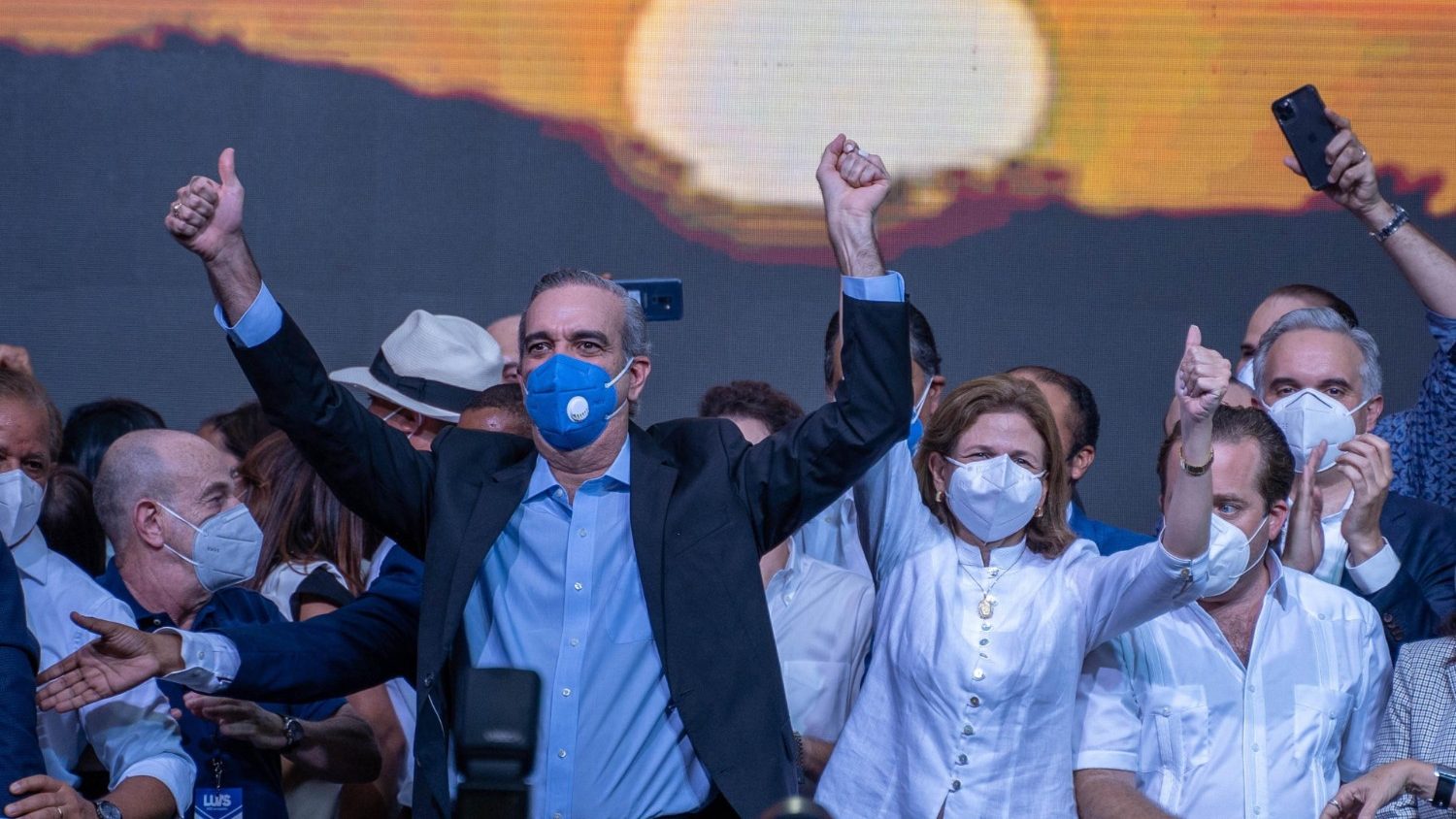
SANTO DOMINGO, May 20 (NNN-AGENCIES) — Dominican Republic President Luis Abinader headed to a second term following Sunday’s general elections, declaring victory after his top competitors conceded early in the night as he held a strong leader in early vote tallies.
The outcome reinforced the government’s crackdown along its shared border with Haiti and on the hundreds of thousands of people who have fled that violence-stricken nation, something only likely to continue in his next term.
Abinader, one of the most popular leaders in the Americas, and the early results showed him with nearly 60% of the votes.. His competitors, former President Leonel Fernández and Mayor Abel Martínez, conceded early in the night.
Abinader supporters in his campaign headquarters started celebrating early on, blowing horns and cheering. In his victory speech, Abinader delivered a nationalistic message promising change and anti-corruption measures. He notably spoke little about of the government’s harsh measures on Haitian migrants and the crisis in its island neighbor.
“The message from the results is clear, the changes that we’ve made are going to be irreversible,” he said. “In the Dominican Republic, the best is yet to come.”
While opposition parties reported a number of small irregularities, voting largely ran smoothly. Many of the 8 million eligible voters are still traumatized by an electoral authority decision to suspend the 2020 municipal elections due to a technical glitch, prompting what appears to be high voter turnout.
The president’s Modern Revolutionary Movement was expected to win a majority in the Dominican Republic’s congress, which would allow him to push through changes to the constitution. It also would allow him to further his anti-corruption and economic agendas, which have earned him the approval of many in the Caribbean nation.
Much of his popularity, however, has been fueled by the crackdown on Haitian migrants.
The Dominican Republic has long taken a hard line with Haitian migrants, but such policies have ramped up since Haiti entered a free fall following the 2021 assassination of President Jovenel Moïse.
As gangs have terrorized Haitians, the Dominican government has built a Trump-like border wall along the 400-kilometer border. He has also repeatedly urged the United Nations to send an international force to Haiti, saying such action “cannot wait any longer.”
The government has rejected calls to build refugee camps for those fleeing Haiti’s violence, and it conducted mass deportations of 175,000 Haitians last year, according to government figures. While the policy is popular among Dominicans, it has drawn sharp criticisms from human rights groups that call it racist and a violation of international law.
“These collective expulsions are a clear violation of the Dominican Republic’s international obligations and put the lives and rights of these people at risk. Forced returns to Haiti must end,” Ana Piquer, Americas director at Amnesty International, wrote in an April report.
Now, as Abinader enters his second term, the president has promised to finish the wall dividing the two countries. He is also likely to continue deporting people back into Haiti at a time that violence has spiked. — NNN-AGENCIES






